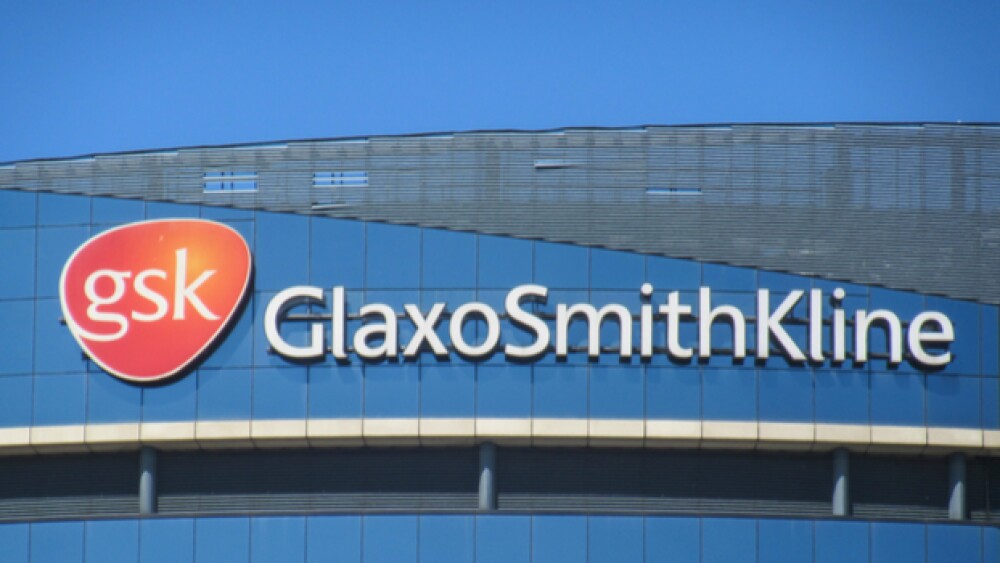Days after receiving a Complete Response Letter from the U.S. Food and Drug Administration (FDA) for Nucala (mepolizumab) as an add-on COPD treatment, GlaxoSmithKline released data that showed the same medication was a superior treatment in severe eosinophilic asthma in patients with similar blood eosinophil counts.
Willy Barton / Shutterstock.com
Days after receiving a Complete Response Letter from the U.S. Food and Drug Administration (FDA) for Nucala (mepolizumab) as an add-on COPD treatment, GlaxoSmithKline released data that showed the same medication was a superior treatment in severe eosinophilic asthma in patients with similar blood eosinophil counts.
This morning, GSK released data from an indirect treatment comparison between Nucala and AstraZeneca‘s Fasenra (benralizumab) and Teva Pharmaceutical‘s Cinqair (reslizumab) that showed its medication “significantly reduced clinically significant exacerbations and improved asthma control” compared to the other two branded products.
Nucala, which targets the IL-5 pathway, was initially approved in 2015 by the FDA to treat patients age 12 years and older with severe asthma with an eosinophilic phenotype. Severe eosinophilic asthma is a phenotype of severe asthma characterized by recurrent exacerbations, poor disease control and eosinophilic inflammation. Eosinophil proliferation, maturation, and activation are controlled by the cytokine interleukin 5 (IL-5). Nucala works by preventing interleukin-5 from binding to its receptor on the surface of eosinophil cells, a white blood cell that contributes to asthma. That interference reduces eosinophil levels. High levels of eosinophil can cause inflammation in the lungs
GSK said it implemented the indirect comparison to evaluate the anti-IL-5 pathway medications. GSK said patients treated with Nucala reduced exacerbations by 34 percent to 45 percent over Fasenra and by 45 percent over Cinqair. Additionally, Nucala demonstrated significantly greater improvements in asthma control as assessed by the Asthma Control Questionnaire (ACQ) score compared to the other two treatments, GSK said in its announcement.
In May the company released data from a late-stage trial that showed one-third of patients treated with Nucala (mepolizumab) experienced no asthma-related exacerbations during the study.
William Busse, a pulmonary specialist from the University of Wisconsin Medical School and trial investigator, said the comparison treatment helps with the understanding of the “the relative efficacy of the three available anti-IL5 pathway directed treatments for patients with severe eosinophilic asthma when grouped by patients’ blood eosinophil counts, which are known to influence treatment effect.” Busse said patients were matched according to blood eosinophil counts and asthma control scores. By taking this approach, Busse said it ensured a “robust comparison,” which will help doctors make a decision about the best treatment for their patients.
While the data showed Nucala to be superior to the other two IL-5 inhibiting treatments in severe eosinophilic asthma, the FDA did not see the efficacy in treating chronic obstructive pulmonary disease guided by blood eosinophil counts. The CRL calls for more clinical data to support an approval. The CRL follows the release of an FDA staff report that casted doubts on the efficacy of Nucala in COPD. The report also raised concerns over how GSK recruited patients for its COPD trial.
Nucala isn’t the only IL-5 inhibitor to fail as a COPD treatment. AstraZeneca’s Fasenra failed in a Phase III trial as a treatment for patients with moderate to very severe COPD.
GlaxoSmithKline said it will work closely with the FDA to determine the appropriate next steps for the supplementary biologics license application.





